South Sudanese head home from war-torn Sudan
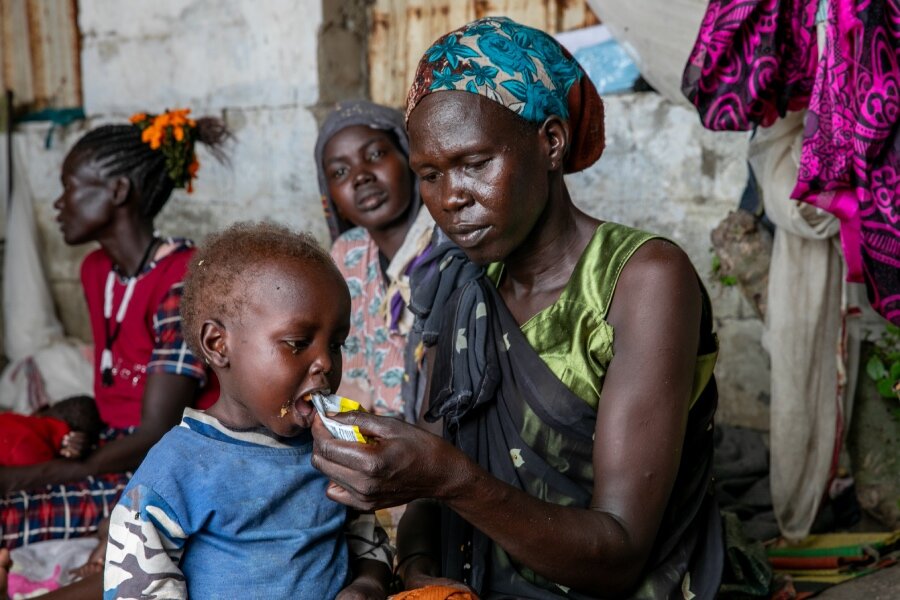
When Aker Monychol Biar’s husband was killed in the latter years of South Sudan’s civil war, she headed north to Sudan, seeking safety and a job to pay for her children’s education.
“There was nothing to eat and I needed to work for my children,” says Aker, a mother of five, who hails from South Sudan’s northern county of Malakal. “I’d heard there was manual work (in Sudan) that I could do.”
Now, she is back in Malakal after fleeing another war - this time in Sudan. Aker recounts her odyssey sitting outside a temporary shelter that she shares with other displaced people, as she feeds a special food supplement to fight malnutrition to her youngest child, an 18-month-old boy.
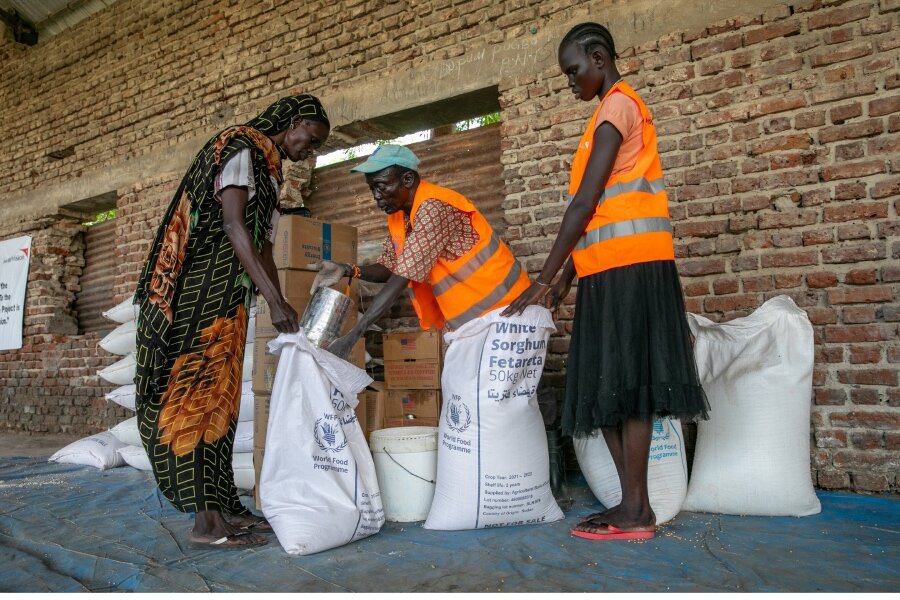
So far, nearly 300,000 people have crossed into South Sudan from Sudan since conflict erupted in that neighbouring country in April. The vast majority of new arrivals are South Sudanese.
Each has a variation of Aker’s story. In recent years, not just conflict, but climate shocks, soaring food prices and a depreciating currency converged to create a hunger crisis in South Sudan, forcing many families to leave in search of livelihoods and education in neighbouring Sudan.
Now, with another war raging, South Sudanese like Aker are going home - to face the same toxic mix of challenges that drove their exodus, but with even fewer resources to surmount them. As they continue streaming in, humanitarian organizations are struggling to respond as funding runs dry.
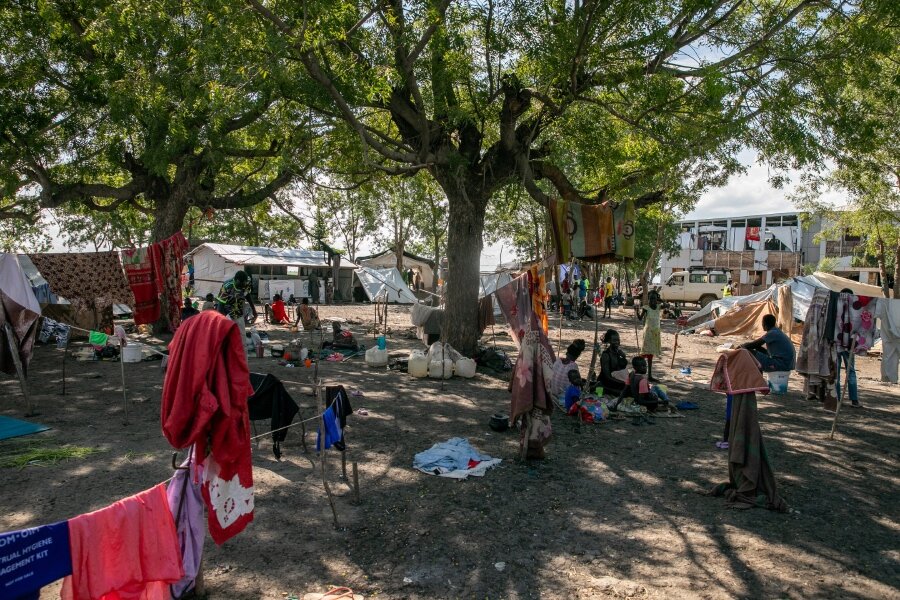
“We are seeing families turn from one disaster to another as they flee desperate circumstances in Sudan only to find despair in South Sudan,” says World Food Programme (WFP) Representative in South Sudan, Mary-Ellen McGroarty.
Struggling to meet vast needs
Since the beginning of Sudan’s crisis, WFP has reached a quarter of a million people crossing into South Sudan with food and cash, along with high-energy biscuits and support to treat and prevent malnutrition. But it is not enough.
“WFP is struggling to meet the vast humanitarian needs at the border,” McGroarty says, “but we lack the resources needed to provide the response that’s required.”
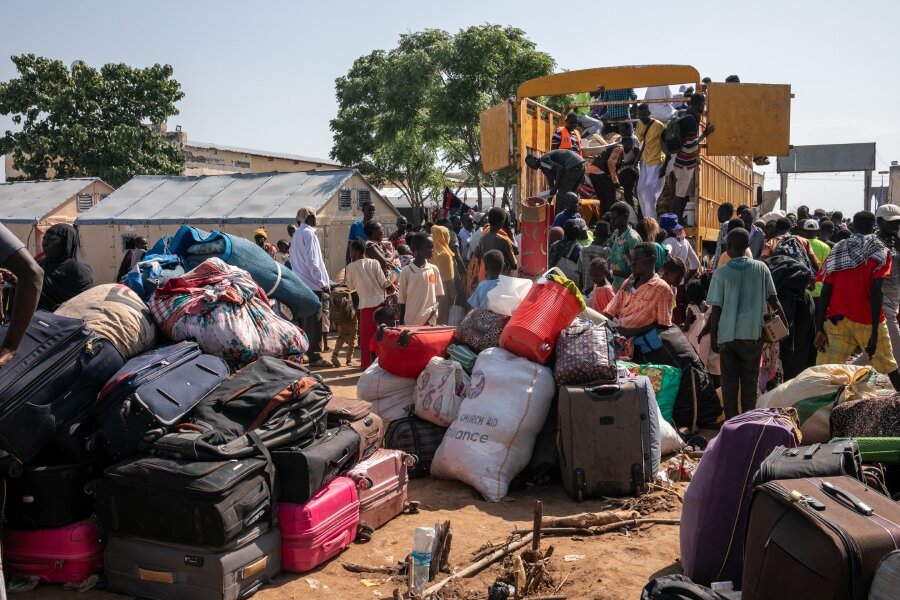
The majority of those fleeing Sudan arrive through a border crossing near Renk in South Sudan’s Upper Nile State - where the rainy season has turned the dusty land into a muddy mess.
Many of the newcomers are hungry, sick and exhausted. One in five children and more than a quarter of pregnant and breastfeeding women screened at the border are malnourished.
“It was a very hard journey. We didn’t have anything; no food, no water, no shelter, nothing. It was especially bad when it rained,” says South Sudanese mother Nyanchiu Pehok, who recently arrived in Renk with her eight children.
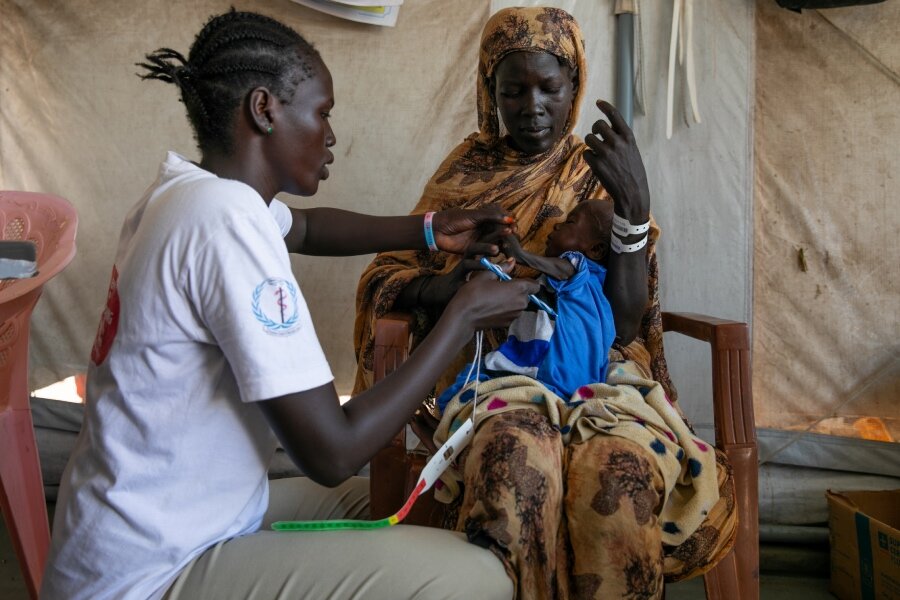
Nyanchiu went to Khartoum last year to attend her brother’s wedding. She decided to stay, hoping to earn a better living to support her family. She worked long hours washing clothes and cleaning houses, making sure her children never went to sleep hungry.
Then Sudan’s conflict broke out, forcing her to make the homeward journey. Nyanchiu’s youngest child, nine-month-old Cheng, became sick while the family was still in Khartoum.
The journey to South Sudan only made things worse. At a nutrition centre in Renk, Cheng tested positive for acute malnutrition.
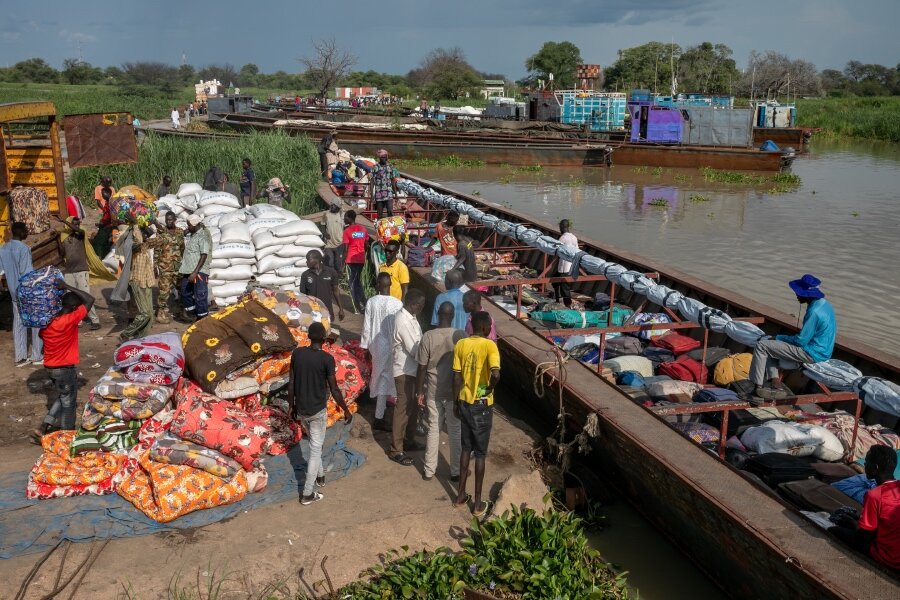
“The humanitarian situation for returnees is unacceptable,” says WFP’s McGroarty. “It is the most vulnerable members of these communities – women, children, the elderly and people living with disabilities – who are suffering the most.”
Hard times ahead
WFP and other humanitarian agencies are working to move newly arrived families like Nyanchiu’s onwards from Renk as quickly as possible. The food-secure region has traditionally had only a bare-bones humanitarian presence. It has since been overwhelmed by the influx.
But moving people on - and meeting their most basic humanitarian needs - has been difficult. Besides insufficient funding, onward transport has been a challenge in an area with no suitable connecting roads.
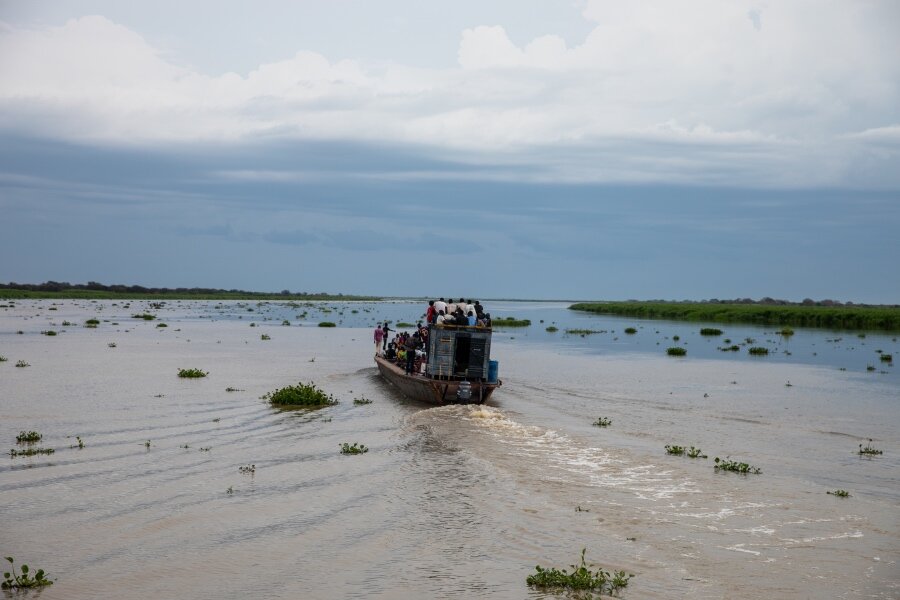
Instead, people are relying on the White Nile, a tributary of the Nile River. The journey by boat to Malakal takes two to three days. From there, the displaced still have a long and difficult journey to reach the communities they choose to settle in, and an even more difficult journey to rebuild their livelihoods.
A couple of weeks ago, Aker made the river journey to Malakal with her family. WFP had provided them, and thousands of other travelers in recent months, with vitamin-packed high energy biscuits - enough to tide them over for the trip.
In Malakal, she received sorghum, oil, pulses and salt from WFP to feed her family. Funding constraints, however, mean the agency can only distribute half the amount of food families need. In practical terms, this equates to a little less than 300 grams of food per person, per day.
On a recent day, Aker cooked the pulses on an open fire as her children sat on the ground nearby. She had no money to add in spices or vegetables, but the children still ate the food with gusto.
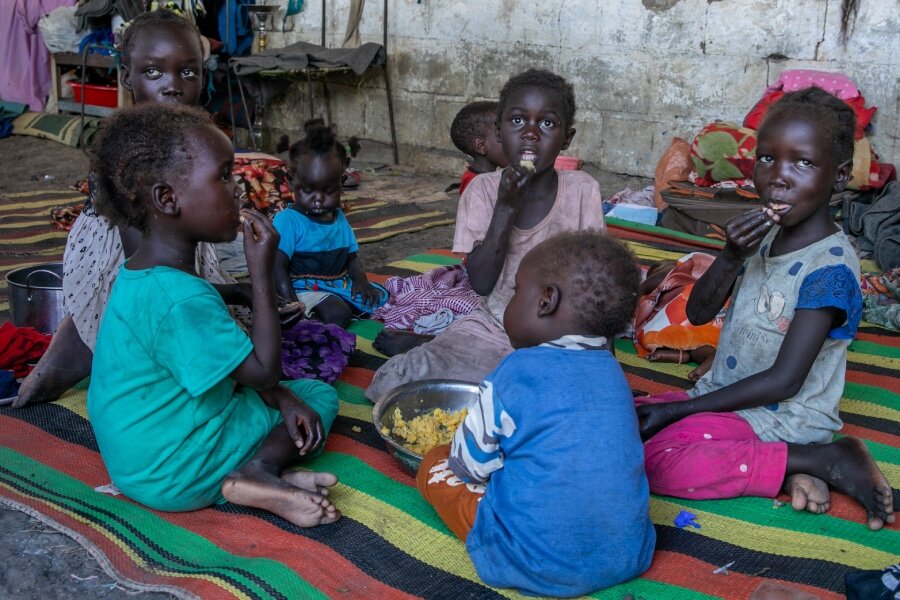
“I am lucky because I received this food, but I don’t know how others will survive today if they get nothing," Aker says. "We’re facing very bad conditions and need a lot of things, but we are trying to support each other and trade what we can.”
More families are arriving in South Sudan. Many have been living in Khartoum and elsewhere in Sudan for years, decades, or even generations. Now they are moving to rural areas of South Sudan, without the skills they need to restart their lives.
They have survived difficult journeys. But for many, it’s only the beginning.
The World Food Programme (WFP) is providing life-saving assistance to families at the border and at their final destination, thanks to support from France, Japan, Spain, Switzerland, the United Kingdom’s Foreign, Commonwealth & Development Office (FCDO), the United Nations’ Central Emergency Response Fund (CERF), the United States Bureau for Humanitarian Assistance (BHA) and private donors. More resources are critical to ensure these families are not left behind. WFP's operations in South Sudan face a US$536 million funding gap over the next six months.
